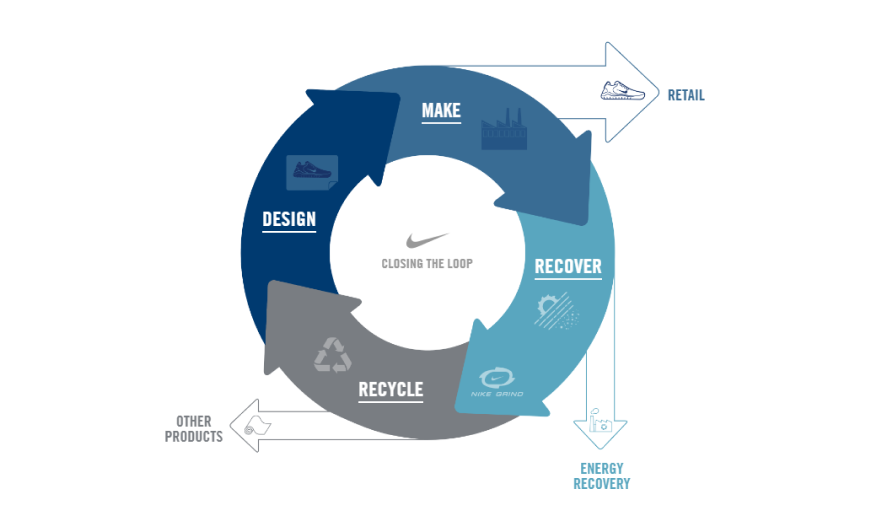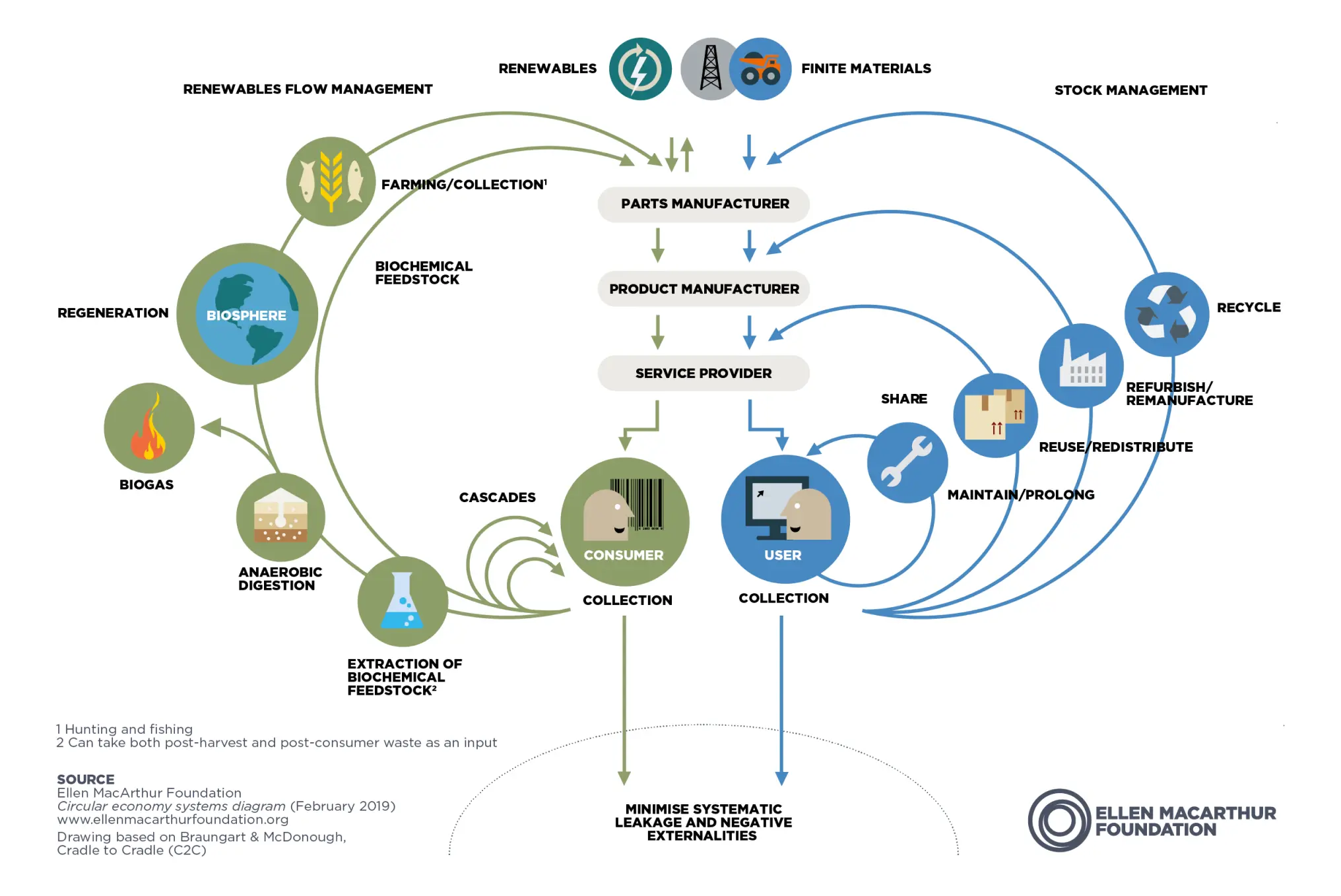Circular Economy Success Stories: Case Studies from Companies Redefining Sustainability
Meta Description: Explore inspiring case studies from companies redefining sustainability through circular economy practices. Learn how they innovate, reduce waste, and drive engagement while enhancing brand reputation.
In today's rapidly evolving economic landscape, sustainability is no longer just a buzzword; it's a crucial consideration for businesses and consumers alike. The concept of a circular economy emphasizes the importance of minimizing waste, reusing resources, and ensuring sustainable practices across industries. As we delve into circular economy success stories, we aim to raise awareness, provide education, motivate businesses to adopt sustainable practices, and establish a community around sustainability principles.
This blog post will explore real-world examples of companies successfully redefining sustainability, offering valuable insights and practical takeaways for a diverse audience, including business owners, corporate leaders, policy makers, and environmentally-conscious consumers. By showcasing these case studies, we aim to foster inspiration and drive engagement in the ongoing conversation about sustainability.
What is the Circular Economy?
A circular economy is an alternative economic model to the traditional linear economy, which operates on a "take, make, dispose" principle. Instead of viewing waste as an end point, the circular economy seeks to create a closed-loop system where products are designed for reuse, repair, and recycling. Key principles of the circular economy include:
- Reduce: Minimizing the consumption of resources and waste generated.
- Reuse: Extending the lifecycle of products through repair, refurbishment, and resale.
- Recycle: Converting waste materials back into useful resources.

Embracing a circular economy not only helps reduce environmental impact but also opens doors for innovation and profitability. Now, let’s explore some inspiring case studies of organizations leading the way in implementing circular economy principles.
Nike: Leading Sustainable Innovation
Nike has made significant strides in embedding sustainability into its business model. One of their focal initiatives is the "Circular Design" strategy, which incorporates sustainable materials and products designed for longevity. A cornerstone of this approach is the "Reuse-a-Shoe" program, which collects worn-out sneakers and transforms them into new products, such as sports surfaces and apparel. This initiative has diverted thousands of tons of waste from landfills, demonstrating that eco-friendliness can coexist with profitability.

Statistics and Impact
- Nike's commitment has led to a reported 99% reduction in waste in their contract factories over the last 15 years.
- The company aims to use 100% renewable energy across its global operations by 2025.
Unilever: Committed to Sustainable Living
Unilever stands at the forefront of the circular economy with its Sustainable Living Plan, aimed at halving the company's environmental footprint while increasing its positive social impact. Among its initiatives, Unilever focuses on sourcing sustainable raw materials and reducing packaging waste through innovations such as recyclable and refillable containers. This comprehensive strategy not only enhances brand loyalty but also resonates deeply with eco-conscious consumers.
Key Metrics
- Unilever reports that warm brand loyalty has grown 30% as a result of its sustainability efforts, reflecting consumer preference for responsible companies.
- The company's commitment to sustainability could potentially save them €1 billion in costs by 2025 through waste reduction.
Interface: A Journey to Zero Impact
Interface, a global leader in modular flooring, embarked on its "Mission Zero" initiative, aiming for zero environmental impact by 2020. This ambitious goal has led to innovations in sustainable carpet production, including using recycled materials and reducing greenhouse gas emissions. Interface transformed its business operations by developing a closed-loop system for flooring products, setting a benchmark for sustainability within the industry.
Achievements and Data
- The company has reduced its greenhouse gas emissions by 96% since 1996, showcasing a strong commitment to sustainable practices.
- They also introduced carpet tiles containing up to 100% recycled content, significantly lowering their ecological footprint.
Ellen MacArthur Foundation: Championing Circular Economy Principles
The Ellen MacArthur Foundation has emerged as a leading organization advocating for the circular economy. It collaborates with businesses, policymakers, and scholars to drive systemic change by providing resources, strategies, and frameworks for circularity. Their initiatives focus not only on improving sustainability within companies but also on influencing broader economic systems.

Highlights
- The foundation's research indicates that transitioning to a circular economy could generate $4.5 trillion in economic benefits by 2030.
- By 2030, businesses adopting circular practices could achieve pollution reductions of up to 70% in certain sectors.
Sector-Specific Innovations in Circular Economy
Fashion: Patagonia's "Worn Wear" Initiative
In the fashion industry, Patagonia has set a powerful example with its "Worn Wear" program, encouraging customers to repair and recycle their clothing instead of discarding it. By promoting second-hand buying and repair services, Patagonia has resonated with eco-conscious consumers while extending the life cycle of their products.
Electronics: Dell's Closed-Loop Recycling
Dell has made a groundbreaking commitment to establishing closed-loop recycling systems for electronic waste. Through innovative practices, Dell transforms discarded electronics into new products, ensuring that precious materials are kept in circulation. This initiative not only mitigates the environmental impact of electronic waste but creates a sustainable business model as well.
Construction: Innovative Material Reuse
The construction industry is increasingly adopting circular practices, such as steel recycling and using reclaimed materials in new builds. Companies focusing on these sustainable techniques contribute to reducing landfill waste and fostering a responsible construction ethos.
Shifting Consumer Behavior
Changing consumer preferences are driving the demand for sustainable practices. Recent studies show that 66% of consumers would pay more for sustainable brands, demonstrating the market feasibility of adopting circular economy practices. Companies that align themselves with sustainability now stand to gain a competitive advantage.
Challenges and Solutions in Circular Economy Implementation
Adopting circular economy principles is not without challenges. Businesses may face upfront investment costs, supply chain complexities, and regulatory hurdles. However, many organizations have successfully navigated these obstacles through innovation, collaborative partnerships, and strategic planning, paving the way for sustainable growth.
Expert Opinions and Insights
Get tips like this in your inbox
One growth tip every Tuesday. No spam.
As acknowledged by sustainability experts, transforming to a circular economy is vital for the future of business and our planet. By valuing resources and minimizing waste, organizations bolster their resilience and appeal in an increasingly eco-conscious marketplace.
Future Outlook: Embracing Technology in Circular Practices
The advent of emerging technologies, such as digital platforms and AI in resource management, is redrawing the landscape of the circular economy. Companies can leverage these tools to optimize resources and enhance collaboration, setting the stage for innovative and sustainable business models moving forward.
Conclusion: Embrace the Circular Economy Today
As we have explored, numerous companies are forging paths to sustainability through innovative circular economy practices. By embracing these principles, businesses not only contribute to a healthier planet but also enhance their reputation and profitability.
Are you ready to join the movement towards a circular economy? To learn more about sustainable practices and engage with a community of purpose-driven individuals, reach out to the key players in this sector, subscribe to relevant sustainability newsletters, and seek out additional case studies that inspire your organization’s journey toward sustainability. Together, we can create lasting impact and redefine what it means to do business responsibly.
